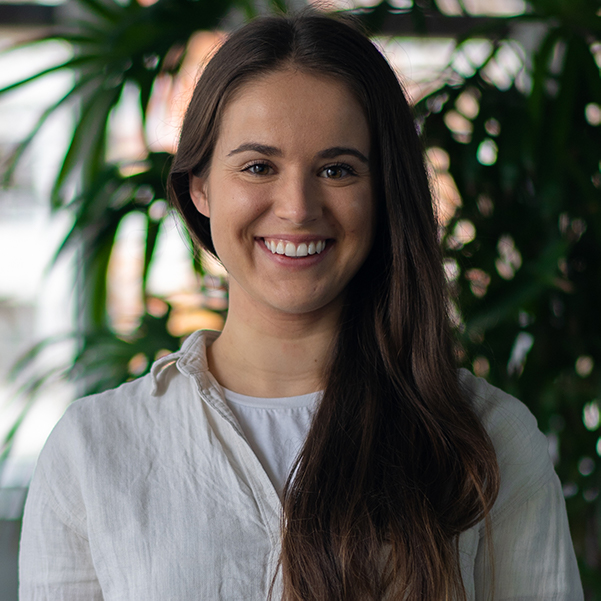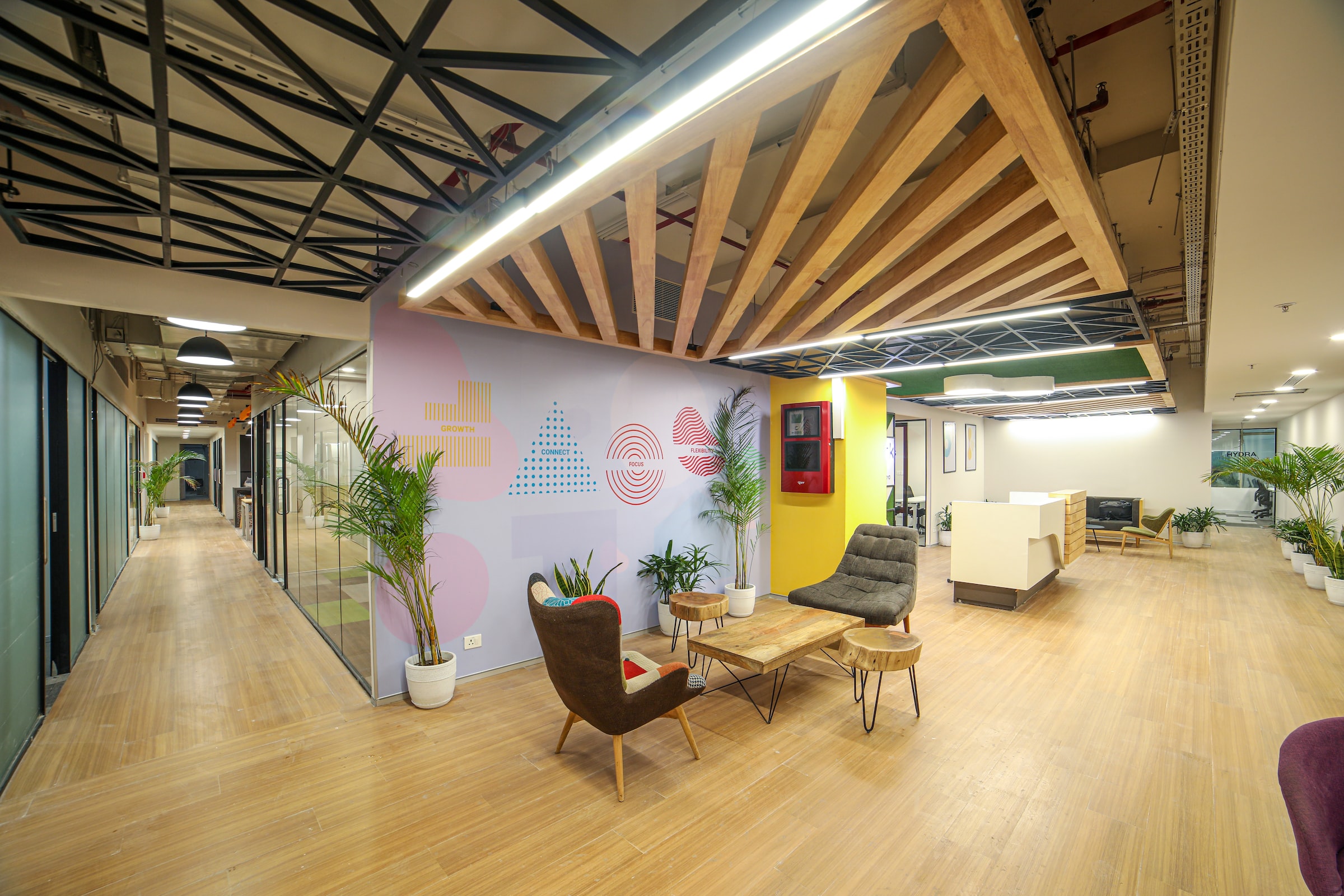The office used to be a physical space we’d attend daily. But now, it’s a human workplace. In this episode, your host Sabine Ehm is joined by Rhebeckha D’Silva to discuss the office of the future.
Our human workplace expert guest
Rhebeckha D’Silva is the head of global real estate at Revolut, located in their London offices. She has over a decade of experience in corporate real estate across various industries. Prior to joining Revolut, she held a similar position at Deliveroo, another fast-growing UK tech company. Even though her job title says real estate, her focus is more on the human aspect rather than on the physical space.
Sabine met Rhebeckha at the Inspired Summit, where she gave a speech on CRE, and so Sabine asked her to join the podcast. Listen to the following clips to learn more about creating a human-centric workplace experience.
“The key to keeping and retaining talent is through people. Also, it’s making sure that the space is somewhere they want to come to. For me, I feel [the office] is the culture. It’s the first physical representation of it.” – Rhebeckha D’Silva
Prioritizing human-centric workplace experience
In her previous positions, Rhebeckha’s CRE team sat under finance or procurement. Instead, at Revolut, real estate is within the people team. This is because their main focus is servicing their customers, including their employees. What would be traditionally called ‘corporate real estate strategy’, is instead called ‘workplace experience’.
Formerly, the office was a place separate from personal life. This meant that real estate managers would prioritize the physical office space. Today, much of that has changed. As this Forbes article mentions, the human workplace is the new work paradigm. CRE managers and workplace experience teams are working to retain talent. This is done by bringing people together, in human-centric office design and remotely. Providing quality experiences to all staff members and keeping employees engaged remotely is Rhebeckha’s forte.
How to create a human-centric office design
“What works in Tokyo, may not work in Russia. So, we want to make sure we’re being culturally sensitive to whatever makes sense in that market. We are very flexible.” – Rhebeckha D’Silva
The pandemic changed the way large companies see their office spaces. And, employees working from home have significantly decreased the need for 1:1 seating space ratios. Revolut’s workplace team took a similar path as many other companies: they looked at the data. First, they measured how people are working. By surveying the masses, they were able to find out how employees are feeling. Also, they found what their views are on the office. Do they feel supported? Are they happy? Do they have all of the technology they need? The workplace team also interviewed team leads to gain greater insight. With this, they were able to create a blueprint model from thousands of data points collected over 6 months.
This led to the creation of RevLabs. The focus will be on health, wellness, and collaboration. The new offices will feature soft seating, breakout areas, and chill-out zones. Moreover, teams will have the ability to choose what they’d like from the blueprint. The data has shown that this method will work. However, Rhebeckha insists that if the survey indicates something different, the plans will change again. Ie, RevLabs will work now, but, will they work in the future?
Can there be a regulated real estate industry?
“If you look at the stock market, it’s regulated. Everybody knows where to go to get stock prices, so you know what people paid yesterday. [In the real estate market], we’ve got no clue.” – Rhebeckha D’Silva
In each episode, Sabine asks the same question: if there was one thing you could magically change, what would it be? Rhebeckha had two answers. One was that she would always be provided with an accurate headcount prediction. This is something that all corporate real estate managers would appreciate but is seemingly impossible. Second, she asked for a regulated real estate industry.
Rhebeckha points out that the financial industry is regulated. If you want to know how much a stock sold for yesterday, you can find that information. In real estate, no such thing exists. If you’re interested in knowing what the latest deals were in Zurich, there’s no central database to look to. Trying to budget an office development in a new country is difficult when you can’t accurately predict costs. Moreover, Sabine brings up how comparability is impossible. Some spaces may be more affordable, but less desirable. So, how can you know the difference?
Conclusion for human workplace
Corporate real estate has changed, and company headquarters are no longer the sole place where offices are located. Companies are now making more human-centric choices as a majority of their workforce is working remotely. At Revolut, Rhebeckha argues that even the name ‘CRE’ is not aligned with their mission. So, they call it the workplace team instead. CRE teams across the industry are honing in on how to retain employees and keep them happy. Rhebeckha and her team have made great strides at Revolut by surveying their workforce and making significant changes.
Listen to this (episode No. 24) and other podcast episodes.
Want to make your office spaces more human-centric with the right data?

 5’
5’




